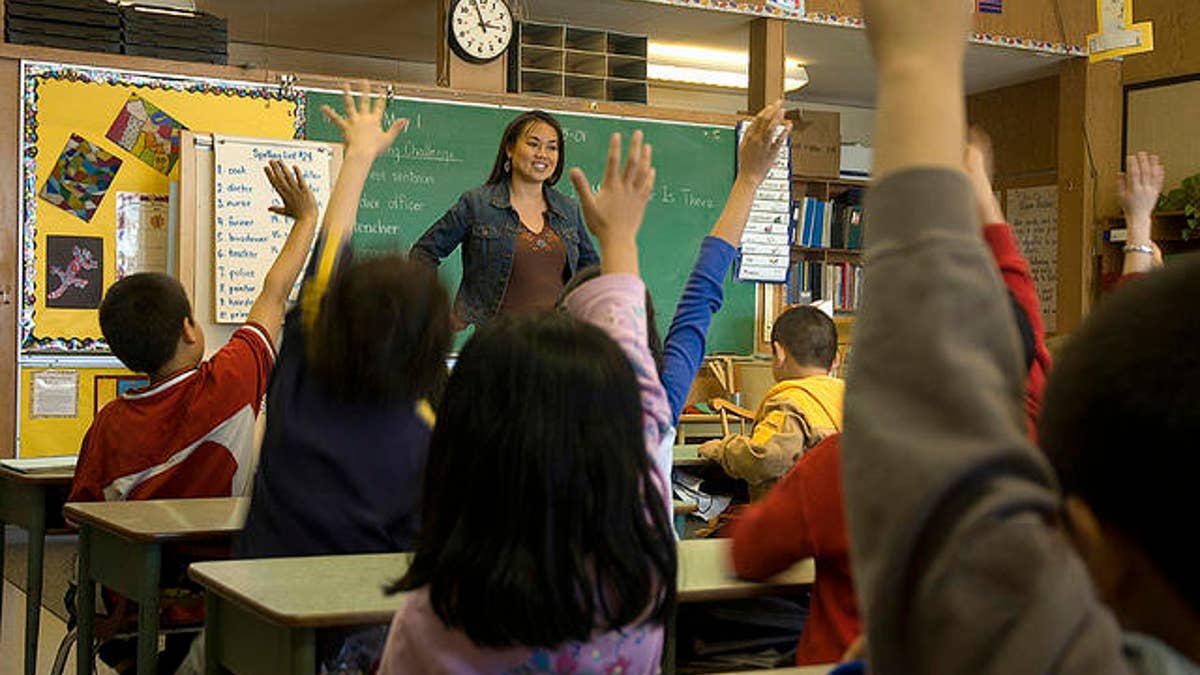
FILE -- (AP)
WASHINGTON – In a globally competitive world, American students have strides to make when it comes to math and science, where they lag behind a solid block of East Asian countries as well as Russia and Kazakhstan.
Eighth graders in the United States improved their scores in math over the last four years on the global exam. Scores for science, however, were flat. In fourth grade, scores were unchanged in the math and science tests, according to results released Tuesday.
"The results do suggest a leveling out in the most recent cycle," said Ina Mullis, an executive director of the TIMSS & PIRLS International Study Center at Boston College, where researchers helped coordinate staff to administer the assessments. "One always prefers to see improvement, but holding ones' own is preferable to declining."
TRUMP COULD REVERSE OBAMA'S ON COLLEGE SEXUAL ASSAULT
Singapore topped the rankings, taking first place in both grades for math and science on the tests, known as the Trends in International Mathematics and Science Study, or TIMSS.
The United States placed 10th in fourth-grade science and in eighth-grade math. In eighth-grade science, the U.S. was in 11th place. It ranked 14th for fourth-grade math, just behind Portugal and Kazakhstan.
Globally, results from the 2015 exams showed achievement trends were up — with more countries registering increases than decreases in math and science for both grades. Gender gaps were another highlight. They have narrowed over the last 20 years, especially in science at the eighth-grade level.
"A lot of countries have been working hard to close that achievement gap, and have promoted girls' interest and participation in science," said Michael Martin, who runs the International Study Center with Mullis.
While the short-term trend for American students overall wasn't glowing, scores over the last 20 years have improved considerably. Math and science scores for eighth graders had sharp gains, as did scores for fourth-grade math. Science scores for fourth graders showed more modest gains over the last two decades.
SEEKING STUDENTS, PUBLIC COLLEGES REDUCE OUT-OF-STATE PRICES
Randi Weingarten, president of the American Federation of Teachers, lauded progress by the nation's students. The study "affirms that when there is an alignment between teachers and students, instruction and standards, and resources — giving teachers the flexibility to teach what students need to know and do — we see success," said Weingarten.
The TIMSS exams are administered every four years in dozens of countries worldwide. More than 600,000 students around the world took part in the 2015 exams.





















